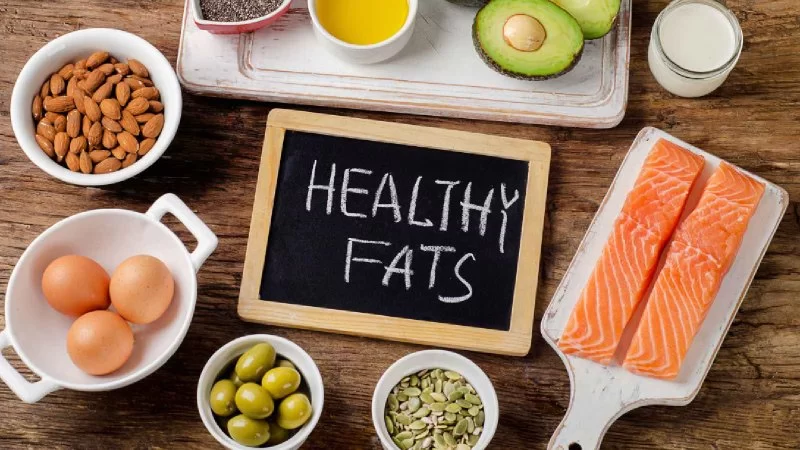- what-are-healthy-fats – understanding fats and their role in heart health
- good-fats – why unsaturated fats are the heroes for your heart
- bad-fats – the risks of trans fats and processed oils
- ugly-fats – when too much of even good fat turns harmful
- real-life-stories – how diet shifts changed lives
- practical-tips – easy ways to add healthy fats to your diet
- expert-insights – advice from cardiologists and nutritionists
1. Understanding Healthy Fats and Their Role in Heart Health
Why fats are not all created equal
For decades, fats were demonized as the enemy of heart health. But the truth is more nuanced: some fats are essential for your body, fueling your brain, reducing inflammation, and protecting your arteries. The real challenge lies in separating the healthy fats from the bad and ugly ones that raise cholesterol, increase plaque buildup, and heighten the risk of heart disease. Choosing wisely can be the difference between a sluggish body and a vibrant, heart-strong life.

2. The Good Fats: Heroes for Your Heart
Monounsaturated and polyunsaturated fats
Found in foods like avocados, olive oil, nuts, and fatty fish, these fats actively improve your cholesterol profile by lowering LDL (“bad” cholesterol) while raising HDL (“good” cholesterol). They help keep blood vessels flexible and reduce inflammation, two key defenses against cardiovascular disease.
Atlanta Heart Specialists
atlanta heart specialists
4375 Johns Creek Pkwy #350, Suwanee, GA 30024, USA

Omega-3 fatty acids
These special fats, present in salmon, sardines, and walnuts, are linked to lower risks of heart attacks and strokes. Clinical studies have shown that omega-3s can stabilize irregular heart rhythms and reduce triglycerides. They represent the gold standard of healthy fats for protecting your heart.
A simple daily ritual
Adding a drizzle of extra virgin olive oil to your salad or swapping butter for avocado on toast may sound small, but over time these habits support a healthier cardiovascular system. At HeartCare Hub, you’ll find curated wellness products and recommendations to complement these lifestyle changes.
3. The Bad Fats: A Hidden Threat in Everyday Foods
Trans fats and hydrogenated oils
Once common in margarine and baked goods, trans fats are among the worst for your heart. They not only raise LDL cholesterol but also lower HDL, a double blow to your cardiovascular system. Even though the FDA has largely banned artificial trans fats, trace amounts can still appear in processed foods, so label reading is crucial.
Saturated fats in moderation
While not as toxic as trans fats, high intakes of saturated fats from red meat, butter, and full-fat dairy can elevate cholesterol levels. The American Heart Association recommends limiting them to less than 10% of daily calories. Moderation and balance are key here.
4. The Ugly Side: When Even Good Fats Go Too Far
Excess calories and hidden pitfalls
Even heart-healthy fats pack nine calories per gram, more than double that of protein or carbs. Overindulging in “good” fats can lead to weight gain, which in turn stresses the heart and raises blood pressure. For example, a handful of almonds is a snack; finishing half a bag in one sitting undermines the benefits.
Fried foods and oxidation
When oils are repeatedly heated at high temperatures, even olive oil or canola oil can break down, producing harmful compounds. That’s why fried foods, even when made with “good” oils, can carry risks if consumed too often.
5. Real-Life Stories: How Diet Shifts Changed Lives
A family’s journey
Consider the story of Mark, a 52-year-old father diagnosed with high cholesterol. After swapping out his daily fast-food burgers for salmon dinners and introducing nuts as snacks, his LDL dropped by 30 points in six months. His energy improved, and he began jogging with his daughter every weekend. His doctor noted it wasn’t just the medication—it was the shift to healthy fats that made a measurable difference.
A viral trend with a lesson
On social media, the “avocado toast challenge” sparked jokes, but behind the trend lies a meaningful truth: small substitutions of bad fats with healthier alternatives can snowball into big health gains. What feels trendy can actually save lives when backed by science.
6. Practical Tips: Adding Healthy Fats to Your Diet
Easy swaps and simple habits
1. Replace butter with olive oil when cooking vegetables.
2. Add chia seeds or flaxseeds to your morning smoothie.
3. Choose grilled salmon over fried chicken when dining out.
4. Snack on almonds or walnuts instead of chips.
Each small change contributes to a big-picture improvement in heart health.
Products that help
From omega-3 supplements to cold-pressed oils, resources at HeartCare Hub can help you implement these changes without confusion. Trusted brands and expert recommendations make the journey smoother and safer.
7. Expert Insights: What Cardiologists and Nutritionists Say
The professional perspective
Experts consistently emphasize balance. While adding healthy fats is crucial, they should complement—not replace—a diet rich in fruits, vegetables, whole grains, and lean proteins. Cardiologists stress the importance of omega-3 fatty acids, while nutritionists often point to the Mediterranean diet as a gold standard for heart wellness.
Why personalization matters
Not every body responds the same way to fats. Genetics, metabolism, and pre-existing health conditions all play roles. Consulting with your healthcare provider ensures your approach is tailored, safe, and sustainable.
Final encouragement
Understanding the good, the bad, and the ugly of fats empowers you to make daily decisions that protect your heart. With practical changes, expert guidance, and resources from HeartCare Hub, building a heart-healthy lifestyle becomes an achievable and enjoyable journey.






















Deborah Heart and Lung Center
deborah heart and lung center
200 Trenton Rd, Browns Mills, NJ 08015, USA